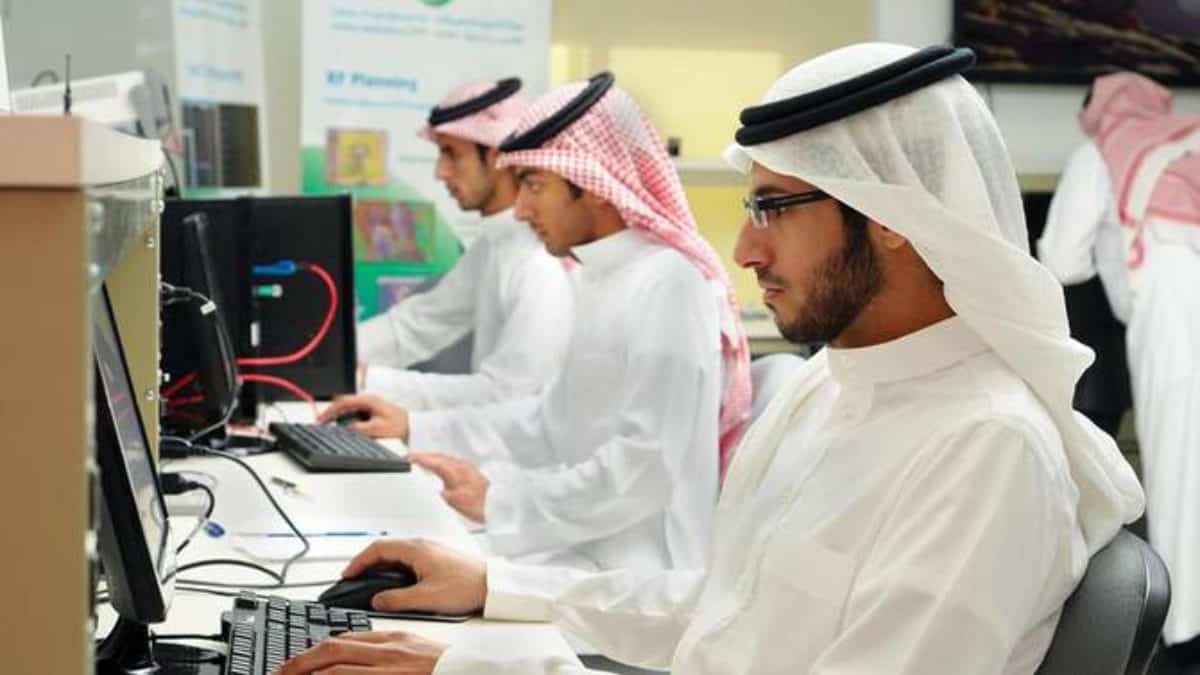Saudi Arabia seeks to play a key role in the Fourth Industrial Revolution (4IR). Four technologies — high-speed mobile Internet, artificial intelligence and automation, big data analytics and cloud computing – generally define the 4IR.
Saudi Arabia has an edge over many others in the region that may help it in implementing the 4IR technologies and solutions, the most important of which is the presence of digital infrastructure equipped with fifth-generation technology and the ability to finance and invest.
In the backdrop of the first Saudi Forum for the Fourth Industrial Revolution, which was recently held in Riyadh’s capital, the kingdom launched a center for 4IR, reflecting the country’s desire to empower this sector and implement all its solutions.
According to a report released by the Ministry of Industry and Mineral Resources, Saudi Arabia’s advanced digital government is one of the country’s most essential features for implementing 4IR strategy, alongside more than 40 specialized and integrated industrial cities and a young demographic with digital technologies experience.
The Ministry revealed that the 4IR helps to support the localization of new and advanced industries in the kingdom, in addition, to expanding supply chains and improving their flexibility and reliability, as well as replacing an appealing quality of the local workforce with low-skilled jobs and boosting the competitiveness of existing industries.
Saudi Arabia places a high hope in this revolution. The Saudi Vision 2030 aims to transform the kingdom into a leading industrial power and a global logistics platform by maximizing value from the mining and energy sectors and focusing on local content and the 4IR to enhance and divest the kingdom’s economy significantly.
The LEAP International Technical Conference also focused on future technologies, digital transformation, and economic diversification in the $IR period and the future of sustainable digital and smart cities.
The World Economic Forum’s Founder and Chairman of the Board of Directors, Professor Klaus Schwab, stated that Saudi Arabia’s establishment of the 4IR Center would enhance the use of new technologies with the best principles of flexible governance, which require collaboration between government, business, and civil society.
On the other hand, the President of King Abdulaziz City for Science and Technology, Dr. Mounir Al-Desouki, stated that the kingdom must cooperate and coordinate efforts in the public, private, and non-profit sectors to raise awareness about the fourth industrial revolution and identify potential risks.
4,000 factories to use 4IR
Saudi Arabia plans to create a globally competitive industrial sector by converting 4,000 factories to use 4IR.
According to Minister of Industry and Mineral Resources Bandar Alkhorayef, the sector’s new strategy would expand locally supplied inputs and utilize 4IR technology.
Alkhorayef stated that an Industrial Fund would be established with a defined program to assist investors in the sector shifting to 4IR technologies with the help of soft loans.
The Saudi Authority for Industrial Cities and Technology Zones, MODON, is also working on converting 100 factories to be models that other can emulate.
New technologies are the biggest supporter of transforming the sector into a local workforce. “The benefits that exist now, whether in terms of infrastructure, funding, or others, were existent in the past, but the difference today is that these rights have been activated through the enactment of the relevant legislation,” he said.
The kingdom’s industrial strategy aims to shift from dependency on cheap laborers to focusing on quality jobs.







